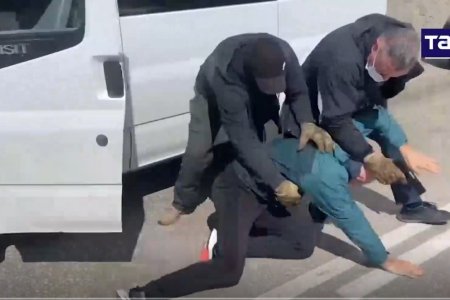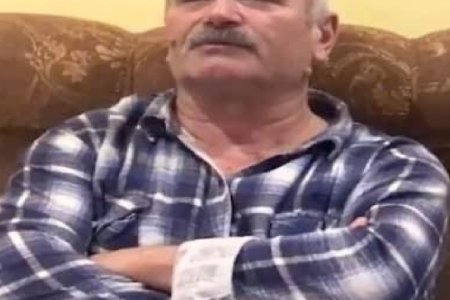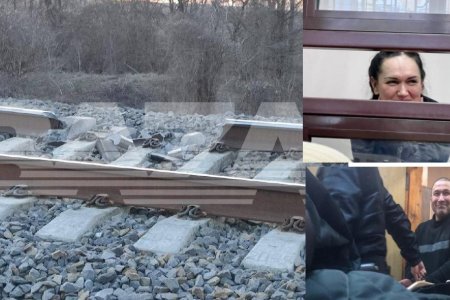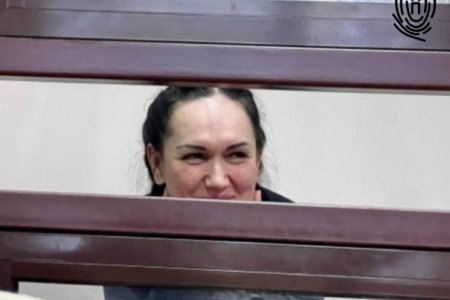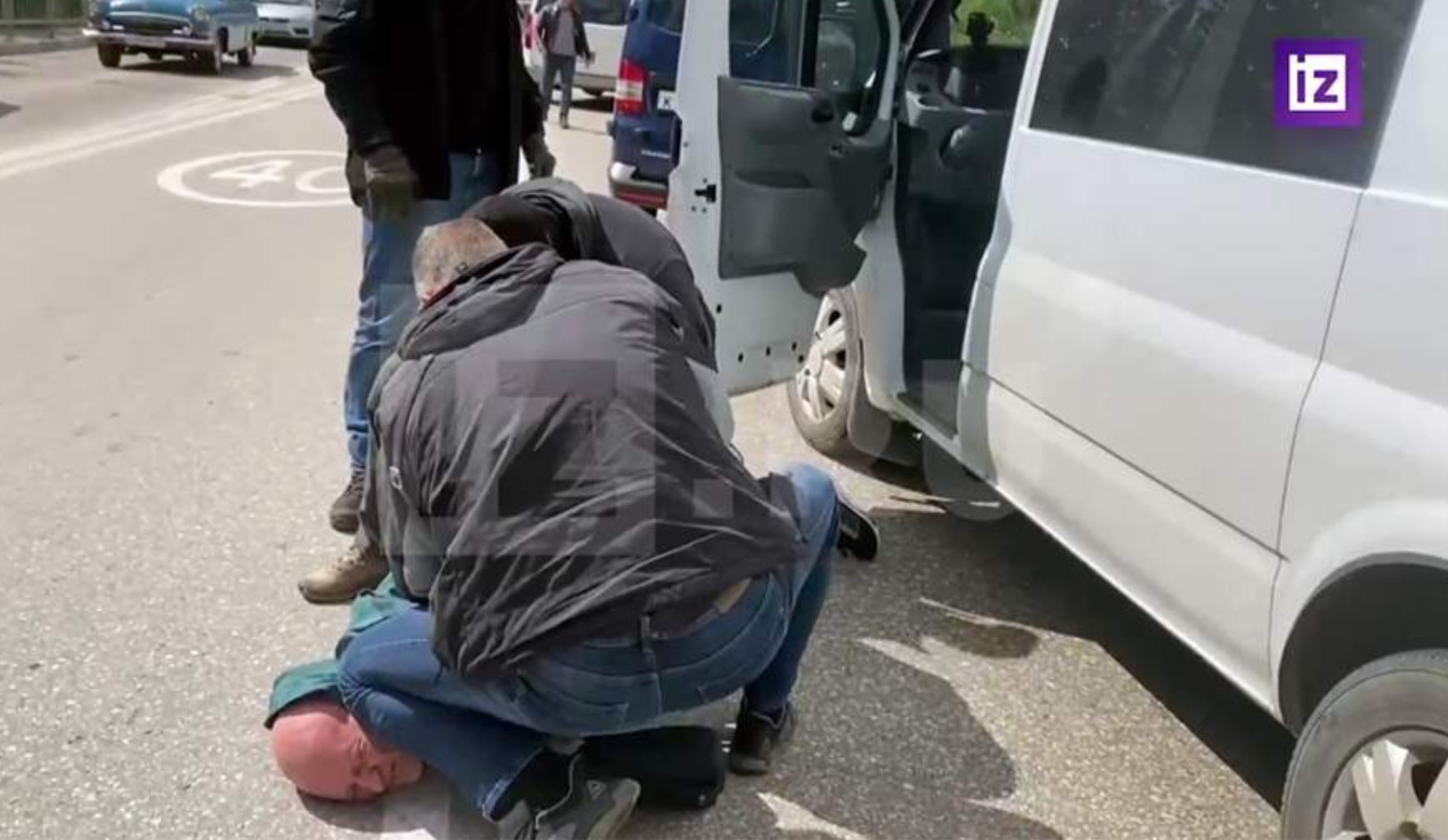
The ‘trials’ are beginning in Russia of two Ukrainians whom Russia accused in May 2023 of planning an ‘assassination plot’ against the Russian-installed ‘leaders’ of occupied Crimea. The fact that only two of at least six men reportedly arrested at the beginning of May last year are facing separate ‘trials’ only compounds the doubts about the alleged FSB-thwarted ‘plot’ backed only by videoed ‘confessions’.
The ‘trials’ of 52-year-old Kostiantyn Yevmenenko and 38-year-old Oleksandr Lytvynenko are to take place at the Southern District Military Court in Rostov, a court which has been notorious for kangaroo trials of Crimean Tatar and other Ukrainian political prisoners since soon after Russia’s invasion and annexation of Crimea. Russia has made it impossible to live and work in occupied Crimea without Russian passports and both men have dual Ukrainian and Russian citizenship, with this making it possible for Russia to charge them both with ‘state treason’ (Article 275 of Russia’s criminal code). They are also charged with taking part in a ‘terrorist organization’ (Article 205.4 § 2); possession of explosive devices (Article 222 § 1Art) and of one count in Lytvynenko’s case, and two in Yevmenenko’s of planning a terrorist attack by a group of people (Article 205.4 § 2 and Article 30 § 1).
On 3 May 2023, Russian propaganda media reported that the FSB in occupied Crimea had “uncovered’ what was claimed to be an agent network of Ukraine’s Military Intelligence [HUR]. It was alleged that the FSB had thwarted plans by this purported network to assassinate the Russian-installed ‘head of Crimea’ Sergei Aksyonov, the ‘speaker of the Crimean parliament’ Vladimir Konstantinov and ‘mayor of Yalta’ Yanina Pavlenko, “as well as terrorist attacks on transport infrastructure facilities” in Crimea.
The reports spoke of six men with dual Ukrainian and Russian citizenship: Serhiy Kryvosheiin; Oleksandr Lytvynenko; Viktor Pidvalny; Serhiy Voinarovsky; Kostiantyn Yevmenenko and Ihor Zorin. A seventh man, identified only by his last name Petranov, is described as a citizen of both Ukraine and Bulgaria. He was said to have delivered the alleged explosive devices, concealed in hotplates to occupied Crimea. The FSB claimed to have discovered five bombs, ready for use; electric detonators; radio-controlled mechanisms and trackers. According to their version, they uncovered a channel, “organized by the Ukrainian Security Service”, or SBU, by which the explosive devices were smuggled in from Bulgaria, via Turkey and Georgia. A Ukrainian national Marina Matushchak was also accused of having organized the smuggling of these hotplates. She may well have been the woman shown on the FSB videos, however there was no indication of her status in ‘the case’.
The FSB did, however, appear to be alleging something that counted as a ‘case’, not multiple cases. Why then the men are clearly being ‘tried’ separately is unclear. As well as the claim that the men had been planning attacks on Aksyonov, Konstantinov and Pavlenko, and as supposed “series of high-profile acts of sabotage – terrorism”, including by blowing up parts of transport infrastructure, the FSB also threw in one incident that does not appear to have been fictitious. There really was an explosion on 23 February 2023 that damaged a part of the railway track in the Bakhchysarai raion. The claim that the detained men were responsible was at very least startling given that the FSB had spent three months carrying out a huge number of armed searches and effective abductions of Crimean Tatars with the 23 February explosion used as the pretext.
It was further asserted that the men had been part of a group, supposedly created by Ukraine’s Military Intelligence under the leadership of Roman Mashovets, deputy head of the Office of Ukraine’s President and “a close friend of Kyrylo Budanov”, the Head of HUR.
The Russian propaganda media showed the supposed FSB ‘interrogations’ of Lytvynenko; Pidvalny and Matushchak. As always, there was nothing to suggest that the men had been given access to independent lawyer and there is every reason to suspect that the ‘confessions’ thus extracted were obtained through torture.
Viktor Podvalny, a man seemingly in his 60s, claimed to have been recruited by Roman Mashovets, whom he himself, most implausibly, called a close friend of HUR Director Kyrylo Budanov. Pidvalny had supposed agreed to work for Ukraine’s Military Intelligence, with the code name ‘Socrates’, because his two sons (born in 1985 and 1987) had sought to evade mobilization. Podvalny reels off ‘confessions to creating an agent network, with his duties supposedly recruiting those willing to work with HUR or the SBU. He purportedly recruited Oleksandr Lytvynenko; Serhiy Voironovsky; Kostiantyn Yevmenenko and Ihor Zorin, and also spoke of sending explosives concealed in hotplates. He further ‘confessed’ to surveillance over Aksyonov; Konstantinov and Pavlenko, with no information provided as to how he could possibly do this, except by following open sources.
A woman, presumable Matushchak, was supposed to have received one of the parcels, and was heard explaining how this happened.
Lytvynenko appears to be from Yalta, and married with two children. On the FSB video, he says that he became acquainted with Pidvalny when he did repairs in the latter’s home.
The reports on 3 May closely followed claims in Moscow of a ‘thwarted plot’ to kill Russian leader Vladimir Putin, and may well have been made public then out of propaganda considerations. The men themselves could have been in custody for some time, held incommunicado and without access to proper lawyers.
MediaZona reports that all of the men named back in May 2023 were, on 21 January 2024, added to Russia’s ‘list of terrorists and extremists’, an extremely suspect list on which the relevant Russian authorities have included most Crimean Tatar and other Ukrainian political prisoners.
Lytvenenko’s ‘trial’ begins on 17 April before presiding ‘judge’ Pavel Yurievich Gubarev; Yevmenenko’s on 18 April (presiding ‘judge’ Oleg Dmitrievich Terentyev.). It remains to be seen whether there are to be six (or even seven) such ‘trials’ in which the outcome is essentially predetermined.
